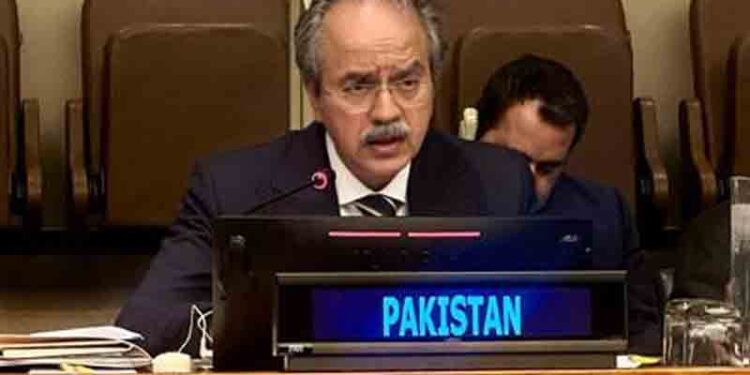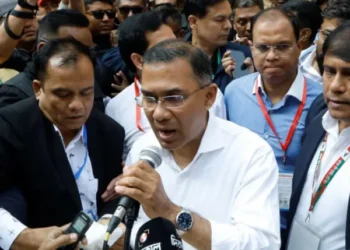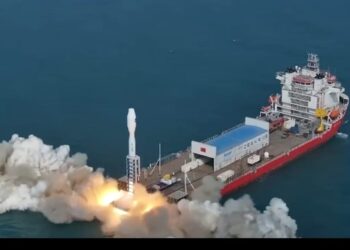New York, United Nations Headquarters – In a high-level debate at the United Nations Security Council (UNSC), Pakistan strongly emphasized that poverty, inequality, and underdevelopment are not just humanitarian issues, but primary threats to global peace and security. The session focused on the intricate relationship between poverty, social injustice, and conflict, and how these issues contribute to persistent unrest in various regions.
Speaking on behalf of Pakistan, Permanent Representative to the United Nations, Ambassador Asim Iftikhar, delivered a comprehensive address, outlining Pakistan’s stance on the urgent need for global action to address these root causes of conflict. He stressed that without tackling economic disparity and social deprivation, achieving sustainable peace and stability would remain a distant dream.
Global Discussion: The Link Between Poverty and Conflict
UN Security Council Focuses on Peace Through Development
The United Nations Security Council convened a special session to discuss how poverty, backwardness, and lack of development contribute to the outbreak and perpetuation of conflict. While traditional discussions in the UNSC often center on military aggression and diplomatic tensions, this meeting shifted the focus to underlying socio-economic issues that silently fuel violence and instability.
Member states and UN representatives agreed that addressing human insecurity is just as vital as traditional national security strategies. In this context, Pakistan presented a comprehensive position, calling for structural reforms in the global financial and political system to combat poverty and inequality on a global scale.
Pakistan’s Statement: Poverty and Inequality Are Root Causes of Conflict
Asim Iftikhar Delivers Key Address
In his address, Ambassador Asim Iftikhar underscored the undeniable link between poverty and conflict, stating:
“Poverty, inequality, and the deprivation of basic human rights are the root causes of many conflicts. Development, human rights, and peace are interdependent and mutually reinforcing.”
He elaborated that social injustice, combined with the lack of basic needs like education, health, housing, and employment, creates fertile ground for instability, radicalization, and even violent extremism.
A Call for a Fair Global Economic System
Ambassador Iftikhar emphasized the importance of building a just and inclusive global economic system. He argued that many developing countries remain trapped in cycles of debt, dependence, and underdevelopment due to structural imbalances in global finance and trade.
He said that:
“A fair global economic order must be established—one that provides equal opportunity for growth and prosperity, especially for the Global South.”
Recommendations by Pakistan: Debt Relief, Climate Financing, and Development Aid
1. Debt Relief for Developing Nations
One of the core pillars of Pakistan’s statement was a strong call for debt relief. Many low-income and developing countries spend a significant portion of their national budgets on debt servicing, leaving little for health, education, and infrastructure.
Pakistan urged the international community, especially wealthy nations and financial institutions, to implement:
- Debt restructuring
- Debt cancellation for the poorest countries
- Zero-interest or long-term loan facilities
These measures, it argued, are essential to allow developing nations to reinvest in their people and avoid falling into perpetual cycles of poverty.
2. Climate Financing and Climate Justice
Pakistan, which has been one of the worst victims of climate change despite contributing less than 1% to global emissions, called for climate justice and fair climate financing. Ambassador Iftikhar emphasized that:
“Climate disasters exacerbate poverty and displacement, creating further instability in vulnerable regions.”
He advocated for:
- Timely disbursement of climate adaptation funds
- Financial mechanisms to support disaster resilience
- Fulfillment of commitments made at global summits like COP28
3. Increased Official Development Assistance (ODA)
Another major point in Pakistan’s statement was the need for increased international development assistance. Wealthier nations had committed under the UN framework to allocate 0.7% of their Gross National Income (GNI) toward Official Development Assistance, but most fall short of this target.
Pakistan highlighted that development aid should not be viewed as charity but as a strategic investment in global peace, particularly in fragile or conflict-prone states.
A Broader Perspective: The Peace-Development-Human Rights Nexus
Interdependency of Peace, Human Rights, and Development
Ambassador Iftikhar reminded the UNSC that peace cannot be sustained in isolation from economic and social justice. He emphasized the “peace-development-human rights nexus”, stating that:
- Without development, peace is temporary.
- Without peace, development is impossible.
- Without human rights, both peace and development are unsustainable.
This view aligns with the broader United Nations Sustainable Development Goals (SDGs), particularly Goal 1 (No Poverty), Goal 10 (Reduced Inequalities), and Goal 16 (Peace, Justice, and Strong Institutions).
Global Context: Why Poverty Fuels Conflict
Fragile States and Violent Extremism
Studies and UN reports have repeatedly found that conflicts often erupt in regions plagued by poverty, weak governance, and systemic inequality. Countries suffering from lack of education, food insecurity, and unemployment tend to become breeding grounds for violent extremism, civil war, and cross-border instability.
Sub-Saharan Africa, parts of South Asia, and the Middle East are clear examples of how economic marginalization and political exclusion can lead to radical movements and armed conflict.
Pakistan’s Own Experience
Pakistan’s insights also come from its own national experiences, having dealt with decades of conflict fueled by poverty, extremism, and foreign interference. Through large-scale social safety nets like the Ehsaas Program and Benazir Income Support Program (BISP), Pakistan has tried to address the root causes of unrest within its borders.
These experiences lend credibility to Pakistan’s stance on the importance of combining development policies with peacebuilding strategies.
International Support for Pakistan’s Position
Recognition by Other Developing Nations
Many countries from Asia, Africa, and Latin America supported Pakistan’s call for a reform-oriented approach to global development and conflict resolution. These nations echoed concerns about being left behind in the current international order, which disproportionately favors the Global North.
UN Secretary-General’s Recent Remarks
Even UN Secretary-General António Guterres has recently highlighted the role of poverty and inequality in driving global instability, urging the international community to bridge the gap between the rich and the poor.
Conclusion: A Global Appeal for Structural Change
In its address to the UN Security Council, Pakistan has drawn a vital connection between economic justice and global peace, calling for a holistic and structural solution. From debt relief and climate financing to development aid and fair trade practices, Pakistan’s message is clear: peace cannot flourish where poverty thrives.
As conflicts continue to erupt around the world, Pakistan’s appeal underscores the need to move beyond traditional security paradigms and invest in long-term, inclusive development policies that serve humanity as a whole.
The world is listening—and the time to act is now.

























